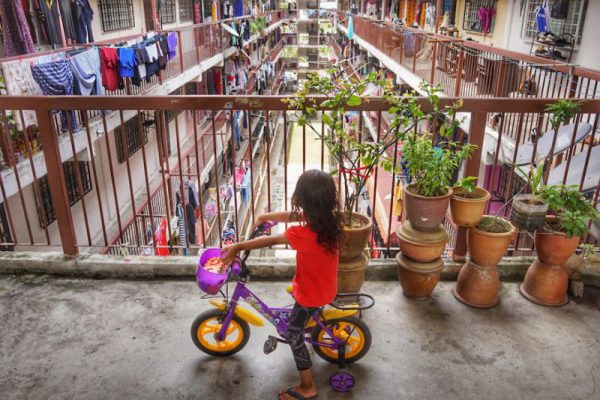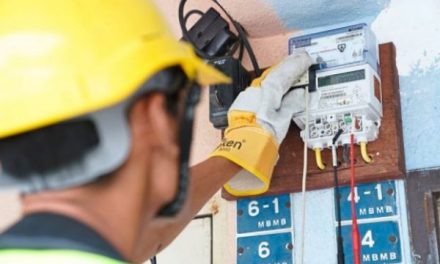Malaysia’s new poverty line income is RM2,208, over 400k households considered poor
Malaysia’s poverty line income (PLI) has been revised from a monthly household income of RM980 to RM2,208, thus pushing up the country’s poverty rate from 0.4% in 2016 to 5.6% last year, which means that over 400,000 households in the country with monthly incomes below this level were considered poor in 2019, the Department of Statistics Malaysia (DOSM) revealed. The update in the Statistics Department’s methodology in computing the PLI came about as it had not undergone a review since 2005. According to the report, the PLI review was done “to ensure that poverty measurement based on PLI is up to date and to accurately reflect the poverty situation”. In announcing the new national PLI, Malaysia’s chief statistician Datuk Seri Mohd Uzir Mahidin explained that the new figure was obtained based on changes in methodology that now emphasised healthy eating and quality basic needs. However, Minister in the Prime Minister’s Department (Economy) Datuk Seri Mustapa Mohamed said if the latest PLI methodology is used to measure poverty rate in 2016, the percentage would be 7.6%. He urged all government agencies as well as state governments to take note of the 2019 PLI in formulating their programmes and policies. “It can also design a more appropriate, dynamic and pragmatic approach for each target group, including in preparing the 12th Malaysia Plan, 2021-2025 which will be presented early next year,” he said. (Malay Mail)

250-people limit to be lifted from July 15
More people can now attend conferences, seminars and weddings from July 15 onwards as the limit of 250 people, imposed earlier, has been lifted, says Datuk Seri Ismail Sabri Yaakob. The Senior Minister said the ceiling imposed on those who could attend prayers at mosques and places of worship was also lifted, which was limited to just one-third of the hall. He said the special Cabinet committee had agreed to allow event organisers, wedding hosts, mosques and places of worship to determine how many people could be present, depending on the size of the event space with social distancing. “For example, after taking social distancing into account, 800 people may attend a wedding in a banquet hall that can accommodate 1,000 guests. The same goes for those attending prayers at mosques and other places of worship as long as social distancing is practised,” he said. (The Star Online)
Digitalisation will accelerate govt services in Malaysia
Digitalisation of the government service delivery system will provide fast service to the people and reduce their need to visit counters at government agencies, said Chief Secretary to the Government Datuk Seri Mohd Zuki Ali. As such, he said the reduction or closure of counters at government agencies can be done as the people can access the services online. “The digitalisation (of the government delivery system) will also enable the government to identify services that can be upgraded to end-to-end online services through business process reengineering, skills development process, human resources, regulatory and policy studies and the use of digital technology.” Meanwhile, Mohd Zuki said the government was aiming to achieve its 40% target of end-to-end online services by year-end. He added that the digitalisation of the government service delivery system is also one of the key initiatives under the National Economic Recovery Plan (Penjana), aimed at encouraging the provision of more facilities, which will enable the public and the business community to deal with government agencies online. (Malay Mail)
Property players call for proactive action
The next six months will shed light as to where the housing sector is heading but analysts and property consultants are not holding their breath, as many structural issues remain unresolved. Large structural issues aside, the immediate hurdle to cross is the lifting of the banking loan moratorium on Sept 30,2020, which may see owners offload their units, Kenanga Investment Bank Research said. “The severity of the situation is only accessible post-Sept 30, ” the July 8 report said, adding that owners may be competing with developer’s sales. It said potential buyers might hold off purchases beyond Sept 30 for bigger discounts. On the impact of Bank Negara lowering its OPR, effectively lowering interest rates for borrowers, TA Securities said the collective loosening of monetary policy is “unlikely to revive” the overall housing market, given the weak consumer sentiment. City Valuers property consultant C Y Lim said the government needs to be proactive instead of reactive. PEPS president Michael Kong said developers must ensure there is demand for the properties they are planning to build before they start work. (The Star Online)
PAP wins Singapore election, taking 83 of the 93 seats
The People’s Action Party (PAP) retained power in Singapore‘s intensely-contested general election Friday (July 10), winning 83 of the 93 parliamentary seats at stake. The party garnered 61.24% of the popular vote, prompting secretary-general Lee Hsien Loong, the caretaker prime minister, to describe the victory as “mandat yang jelas” (a clear mandate). This is the second consecutive general election in which the PAP had fielded candidates in all 31 electoral divisions. In the 2015 general election, which saw all seats contested for the first time since independence in 1965, PAP swept 83 of the 89 seats, winning 69.9% of the popular vote. (The Star Online)





